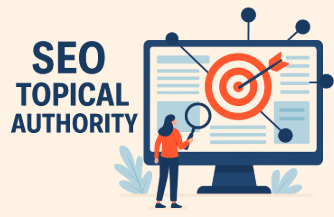Search Engine Optimization (SEO) has always been about understanding how search engines work and aligning websites with ranking factors. But in recent years, machine learning (ML) has transformed SEO into something far more advanced. Search engines like Google now rely heavily on machine learning algorithms to interpret search queries, evaluate content quality, and deliver the most relevant results.
For SEO professionals, this means adapting strategies to match a world where machines don’t just follow rules — they learn, evolve, and predict. In this guide, we’ll explore what SEO machine learning is, how it impacts search, and how businesses can harness it to stay ahead.
What is SEO Machine Learning?
Machine learning is a branch of artificial intelligence that enables systems to learn from data and improve over time without explicit programming. When applied to SEO, it refers to:
- How search engines like Google use ML to rank pages.
- How SEO professionals can use ML-driven tools to optimize websites.
In essence, SEO machine learning is both about adapting to Google’s ML algorithms and leveraging ML-powered tools to improve SEO performance.
How Search Engines Use Machine Learning in SEO
Search engines have long evolved past simple keyword-matching. Today, Google and Bing use machine learning to better understand search intent and deliver highly relevant results.
Some key examples:
1. Google RankBrain
Launched in 2015, RankBrain is Google’s first ML-based algorithm. It helps interpret search queries, especially those that are rare or ambiguous, by analyzing patterns and predicting intent.
2. BERT (Bidirectional Encoder Representations from Transformers)
BERT is a deep learning algorithm that helps Google understand the context of words in a query, making search results more accurate for natural language.
3. MUM (Multitask Unified Model)
MUM is Google’s next-generation AI model, designed to interpret complex queries, understand multimedia (text, image, video), and provide richer answers across languages.
4. Spam Detection
Machine learning identifies and filters low-quality or manipulative SEO tactics like keyword stuffing, link schemes, and duplicate content.
How SEO Professionals Can Use Machine Learning
Just as Google uses ML for ranking, SEO specialists can apply machine learning tools to optimize websites. Here are some practical applications:
1. Keyword Research and Clustering
ML tools process massive datasets to identify semantic keyword clusters that reflect user intent. Instead of targeting single keywords, businesses can optimize for entire topics and entities.
2. Content Optimization
AI-driven platforms like SurferSEO, Clearscope, and MarketMuse use ML to analyze top-ranking content and provide data-driven optimization recommendations such as ideal keyword density, semantic terms, and content length.
3. Predictive Analytics
Machine learning can forecast SEO trends by analyzing historical data, SERP changes, and user behavior. This helps brands publish content before demand spikes.
4. User Experience Signals
ML helps interpret behavioral metrics like CTR (click-through rate), dwell time, and pogo-sticking, all of which influence rankings.
5. Automated SEO Audits
Platforms like Botify, OnCrawl, and Screaming Frog (enhanced with ML models) automate technical SEO analysis, identifying crawl waste, errors, and opportunities faster than manual reviews.
Benefits of Machine Learning in SEO
Adopting ML in SEO strategies provides several advantages:
- Better Understanding of Search Intent
- Optimize content around what users mean, not just what they type.
- Scalable Optimization
- Handle massive sites (e.g., e-commerce platforms) with automated recommendations.
- Improved Predictions
- Stay ahead of competitors by anticipating ranking shifts and keyword trends.
- Higher Accuracy
- Reduce human error in keyword research, content creation, and reporting.
- Continuous Improvement
- ML systems learn from data and get smarter over time, unlike static rules.
SEO Tools Powered by Machine Learning
Here are some leading ML-based SEO tools:
- SurferSEO – Content optimization with NLP analysis.
- Clearscope – Semantic keyword and readability optimization.
- Frase – AI-driven content briefs and automated FAQs.
- MarketMuse – Machine learning for topic clustering and content scoring.
- Ahrefs / SEMrush – ML models for backlink and keyword insights.
- Google Analytics + BigQuery – ML-powered traffic and behavior analysis.
Real-World Applications of SEO Machine Learning
🔹 E-commerce SEO
ML automates meta tag generation, dynamic product descriptions, and personalized recommendations.
🔹 Local SEO
Machine learning analyzes review data, customer interactions, and regional queries for better local ranking.
🔹 Content Marketing
AI systems generate SEO-driven content ideas, optimize headlines, and even create drafts.
🔹 Technical SEO
ML identifies log file patterns, crawl inefficiencies, and prioritizes indexing of high-value pages.
The Future of SEO and Machine Learning
The relationship between SEO and machine learning will only deepen. Here’s what’s coming:
- Conversational Search → Voice and chat-based queries will require more natural optimization.
- Entity-Based SEO → Google is moving beyond keywords toward entities and knowledge graphs.
- Real-Time SEO → AI systems may soon make instant on-page optimizations as SERPs shift.
- Multimodal Search Optimization → Optimizing for images, videos, and even AR/VR queries.
- Hyper-Personalization → Content will be tailored dynamically to each individual searcher.
Best Practices for SEO in the Machine Learning Era
- Focus on topics and intent, not just keywords.
- Invest in structured data (schema markup) to help machines understand content.
- Use ML-driven tools to scale audits, content optimization, and reporting.
- Track user engagement signals — machine learning rewards content users actually value.
- Stay updated as Google’s ML models (BERT, MUM) evolve.
Final Thoughts
SEO machine learning is no longer optional — it’s the present and future of search. Search engines like Google are powered by ML to deliver smarter, more relevant results. On the other side, businesses that leverage machine learning for SEO gain a competitive edge through automation, predictive analytics, and content optimization at scale.
The takeaway? SEO is no longer just about ranking for keywords — it’s about aligning with how machines learn, interpret, and deliver results. Those who embrace machine learning today will lead the organic search landscape tomorrow.




